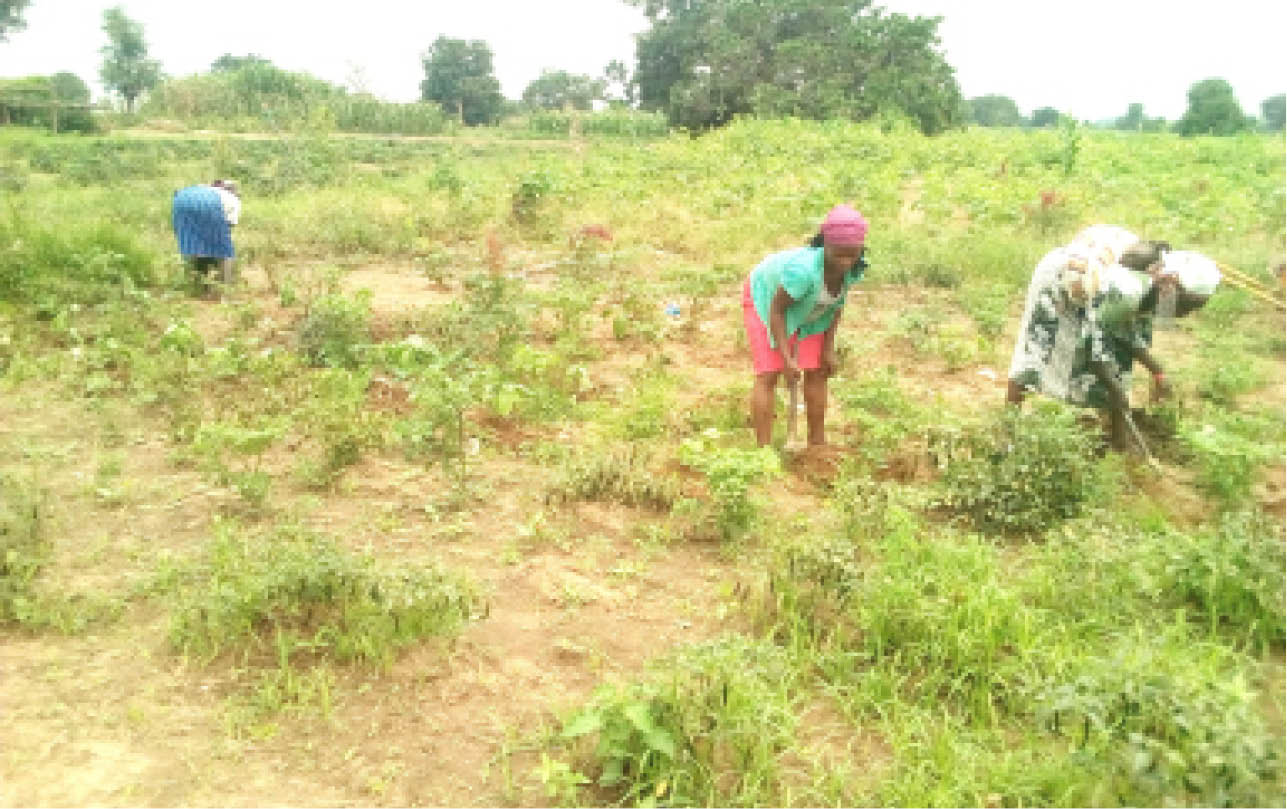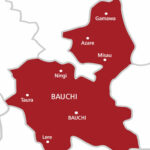In Nasarawa State, many rural women are embracing farming to eke out a living instead of sitting idle at home, waiting for white-collar jobs, engaging in commercial sex, human trafficking or other social vices. Daily Trust spoke with some of the women and now reports.
Gaate farm is no new place for most indigenes of Nasarawa State. Interestingly, the women who work there have been nicknamed the ‘Industrious Female Farmers of Gaate’ Daily Trust visited the community and interacted with a number of them.
Binta Boniface, a 19-year-old indigene of Benue State, works as a poultry attendant with the Nigeria Farmers Group and Cooperative Society (NFGCS). Sharing her experience with our correspondent, Binta said her plan was to establish her own farming business.
- Inside solar-powered Kilishi factory that is changing lives in Katsina community
- Dangote’s $1m gives MKO Abiola national stadium Abuja new-look
“I like the job because it is lucrative. With my experience, I will be able to establish my own poultry. My parents are poor and I cannot sit at home without doing anything to keep me busy. That is the reason I accept to do the work,” she said, adding that from her monthly salaries she takes care of her parents and sponsors herself in school.
Binta, who started working in the poultry farm since May 2020, receives N16, 000 monthly.
Also speaking with our correspondent, Mailani Samuel, an indigene of Kaduna State but lives in Ga’ate community in Kokona Local Government Area of Nasarawa State, said she decided to work in the company to enable her to become self-employed.
The 22-year-old student of the Department of Science Laboratory Technology, Federal Polytechnic, Nasarawa, said she paid her school fees and took care of other needs from what she got every month.
“I have learnt how to plant vegetable seeds. Before now, I was working in the poultry department,” she said, adding that she receives N16,000 every month.
Mailani also said she chose to do her industrial training there because of the experience she would gain in poultry and seed planting.
“I am happy doing the job because the plants are growing extremely well. The challenge is that when there is a storm, the building will collapse.
Mailani urged other young women to engage in meaningful ventures instead of loitering and waiting for men to give them before they could take care of their needs.
“Before now, if someone told me that I would engage in farming activities I would not believe it, but with this, I was able to train myself and obtain a National Diploma in Science Laboratory Technology,” she said, adding that she has enrolled for HND in the same course.
She appealed to the state government to assist the company with farming implements, such as tractors and irrigation machines as this would help to create more job opportunities for many idle young women in the state.
For Mrs Rita Saga, a 35-year-old woman who started working in the company in 2020, she was motivated by the urge to train her children in school since her husband doesn’t have much to cater for the family.
Mrs Saga further explained that she bought some pigs to rear at home from what she earned every month. She takes the pigs to bush markets to sell and get additional money to take care of her family.
“I receive N20, 000 every month, which I use in feeding my family and buying clothes, as well as assist my husband anytime we don’t have food at home.
“My husband is a mason and he lives in Abuja. I live in Sabo Ginda and I transport myself every day to my workplace. I spend N350 for transport,” she said.
Speaking to Daily Trust Saturday, Mrs Lydia Obadiya, a 35-year-old woman who has been working in the company for about three years, said that since she didn’t acquire western education, the only option for her was to engage in farming. She boasted that with farming, she was far better than someone who holds a bachelor or master’s degree and working in the city.

According to Mrs Obadiya, who finances her children’s education through farming, it is the only way to survive the present economic hardship in the country.
She said, “My husband is a farmer and I am happy to work in this company. Before now, we only ate once in a day. Sometimes my husband didn’t receive his salary and feeding was tough, but since I started working in this company, hardship has gone.”
Furthermore, Mrs Hanna Bulus, who hails from Mainte in Kokona Local Government Area of Nasarawa State, said she accepted the offer to work in the farm so that she would help her husband to provide food for the family. She added that with the present situation of the economy in the country, she could not leave the burden of taking care of their children for her husband only.
According to the 35-year-old Mrs Bulus, who earns N4,200 every day, she pays their house rent and her eight children’s school fees from her salaries. Her husband is also a farmer.
The national coordinator and managing director of the Nigeria Farmers Group and Cooperative Poultry Limited, Mr Retson Tedheke, told our correspondent that they established the farm at Ga’ate to tap from the opportunities in the rural area and address the high rate of poverty and unemployment across the country. He noted that this would go a long way in reducing overdependence on the oil sector.
“The people in rural areas should be the reason why things would succeed in this country. This is a community farm project for rural Nigerians,” he added.
Tedheke said he established the farm because he discovered that agriculture was the foundation of industrial development in any country.
“We were motivated by history and belief in Nigeria. We thought of how to empower our people and give them the opportunities they need to grow our country,” he said.
He revealed that at least 300 women and young men were offered job opportunities in the farm.
“We have over 70 per cent workforce here. Over 200 of them are women, and they work better now. They are committed, more dedicated, understanding, and work harder,” he added.
On the challenges they face, he said, “The primary challenge is finance. If we want to develop well in Nigeria we must spend money. Imagine that I am spending N75million to get electricity. From Akwanga-Keffi expressway to this place, we built the power line without the government’s support, including the two transformers (55KVA) we are using here and the 100 KVA for the community.”
He also said they spent over N50m to construct a dam, while their water treatment plant cost more than N50m.
“We also constructed the road you are using. When a private man is spending over N200m to invest in this country, you should know what it means. It is difficult.
“Sometimes you get private funds because you want to take care of emergencies. And you do that up to 50 per cent in a year. That is not good for business. Finance is a major issue. And we need to employ and empower more,” he added.
He said there was the need for government to support what they are doing, adding that they could become one of the largest employs of labour in rural areas and the country in general.
“We can build the Nigeria of our dream. We can use our lands to make the country great.
“The youth must work harder as there is no miracle anywhere,” he said.
He called on the federal government to invest in agriculture and encourage the people to do the same thing.

 Join Daily Trust WhatsApp Community For Quick Access To News and Happenings Around You.
Join Daily Trust WhatsApp Community For Quick Access To News and Happenings Around You.


